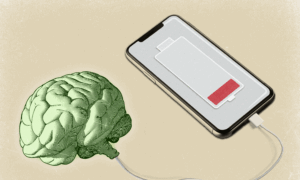There are many different ways to measure happiness and many words we use to describe those nuances.
A simple definition of happiness I like is this: Happiness is the byproduct of a life well-lived. I think this aligns well with reality. Most of us, if given the chance, wouldn’t choose to live our lives attached to a computer simulation that promised us the blissful feeling of happiness over the real experience.
We want our happiness to be the genuine result of what we experience and create in life—the resonance of the people we love, the things we accomplish, and the memories we make.
For that reason, it’s hard to describe how to be happy. There are so many ways to be happy and they are going to depend hugely on one’s circumstances.
Unhappiness is a different story.
Unhappiness seems to have its source in a few common foes. And while you have likely met them before, I thought it worthwhile to remind both myself and my readers what we would do well to avoid.
5 Preventable Causes of Unhappiness
From my personal experience and observations, there are five preventable causes of unhappiness.1. Not spending enough time with friends and people you love
For the more evidence-seeking among us, look no further than a popular 2009 research paper in the Journal of Happiness Studies—friendships make us happy by helping us to mutually meet each other’s basic needs. If you think back to the happiest, most fulfilling moments of your life you will probably notice that close relationships were at the center of those experiences.
2. Not making daily investments in your health and well-being
Whenever I find myself in an emotional funk, it doesn’t take much reflection to identify the typical explanations: Either I wasn’t eating well, sleeping well, or exercising enough. With only a few days to a week of consistency in bettering those fronts, I notice a profound change in the way I feel both physically and mentally.
3. Not having an overarching purpose or mission in life
My mission in life is rooted in my Christian faith. It provides an understanding of why I’m here on this earth, an understanding of how to live well while I’m alive, and a reason to hope for the future. While I’m not here to evangelize, I’d be lying if I didn’t admit that I would love for all people to share this joy with me. Regardless, it seems happiness requires a convincing and powerful story to drive our behavior or we’ll be carried away by the short-term view of our current circumstances.
4. Not finding a productive outlet
I’ve seen many people made miserable by their work, either by not enjoying it or not being able to find it. For the vast majority of people, at least in my own life, this is a solvable problem. By simply choosing to care, give your best, and work hard, at whatever you do, you can transform nearly any job into work you can be proud of.
5. Choosing to compare yourself with others
Happiness is, of course, a relative gift. If it weren’t then only the most successful or lovable among us would be able to enjoy its blessings. In this sense it is subjective. The decision to be happy with your circumstances can be made by anyone who chooses to focus on what’s good in their life rather than what’s not.
One of the most predictable ways to destroy happiness is to envy the good things others have. This warps our mindset away from gratitude and toward comparison. We become unable to enjoy what we do have because, in our minds, it’ll never be the best. And we can’t be happy for others because we see them as competition, rather than fellow humans.
Try to remove these common sources of unhappiness, and learn to enjoy what is here. Happiness is contagious and will reverberate to others around you—then come right back to you.













